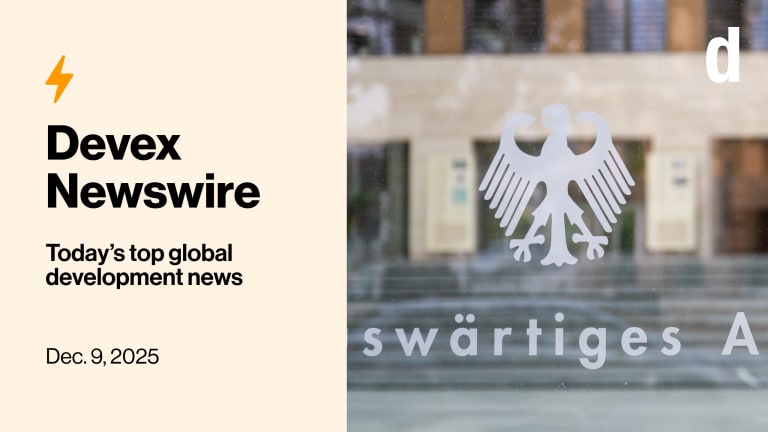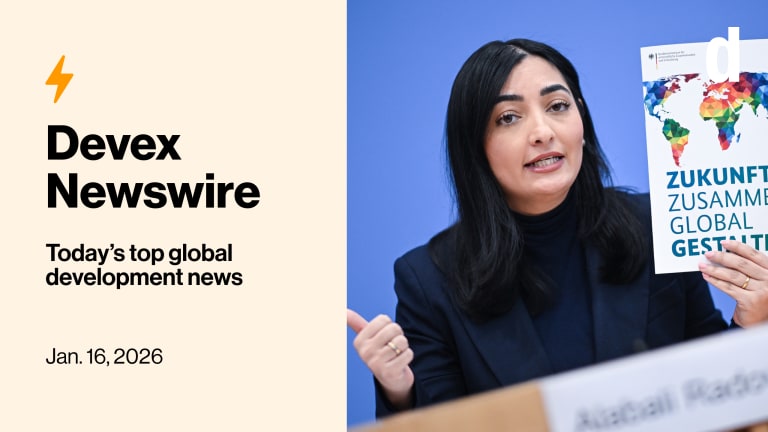
BRUSSELS — Germany wants China and the Gulf states to shoulder more of the burden in tackling the world’s humanitarian crises, according to a top government official.
“In order to meet the ever-increasing humanitarian needs it is necessary to widen the donor base and to bring more non-traditional and also new donors into the [United Nations] coordinated humanitarian system,” Niels Annen, minister of state at the German Federal Foreign Office, told members of the European Parliament’s development committee on Thursday.
To that end, Berlin is looking to the Gulf states and China in particular. “They have repeatedly voiced their readiness to shoulder global responsibility, and they do have the economic capacity to provide substantial humanitarian assistance,” the minister said.
Encouraged by Qatar chairing the U.N. Office for the Coordination of Humanitarian Affairs’ donor support group and Saudi Arabia hosting the Yemen humanitarian pledging conference, Annen added that “we want to encourage them to attach even more importance to steady contributions to the United Nation coordinated humanitarian system,” as well as the humanitarian principles — humanity, neutrality, impartiality, and independence.
“The European Union should not offer new donors an opportunity to engage in a public relations activity.”
— Niels Annen, minister of state, German Federal Foreign OfficeBeata Kempa, a conservative Polish MEP, urged caution, however, as she said states may provide aid to alleviate the effects of conflicts in which they are also participants. “How can we be calling upon those countries to provide humanitarian aid, if their biggest sin is providing weapons to Yemen and interfering in military conflicts?” Kempa asked. “We cannot make it so easy for them to improve their image by giving a bit of money.”
Annen replied that he was not “naive” and that Germany expected donors to commit over the long-term, to follow humanitarian norms, and to follow coordination from the U.N. “The European Union should not offer new donors an opportunity to engage in a public relations activity,” Annen said.
The minister was appearing before MEPs to set out Germany’s priorities for its time leading the rotating presidency of the Council of the EU, from July to December this year. Other priorities include improving anticipatory humanitarian action on adapting to climate change, and safeguarding humanitarian space and international law.
On China, Annen told MEPs that with its “economic power” and “self-perception as a responsible player on the global stage” it appeared to be “preparing itself to enter the field of humanitarian assistance more prominently.”
“We are also interested in exploring ways to initiate an EU-China dialogue also on humanitarian assistance during our presidency,” he said. “We are currently preparing to start humanitarian consultations with China.”
The German delegation in Brussels could not immediately provide more information on what those consultations will involve.








